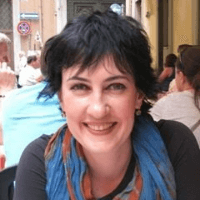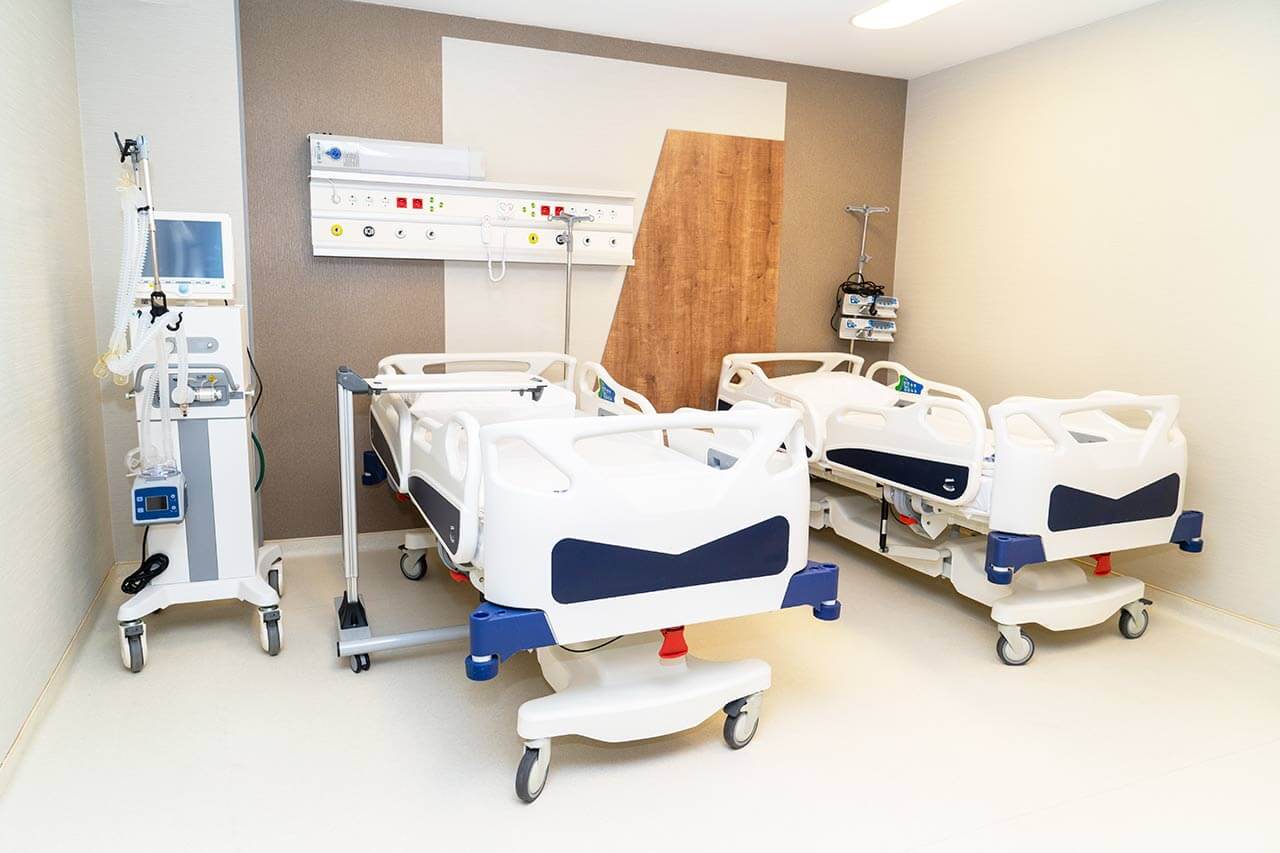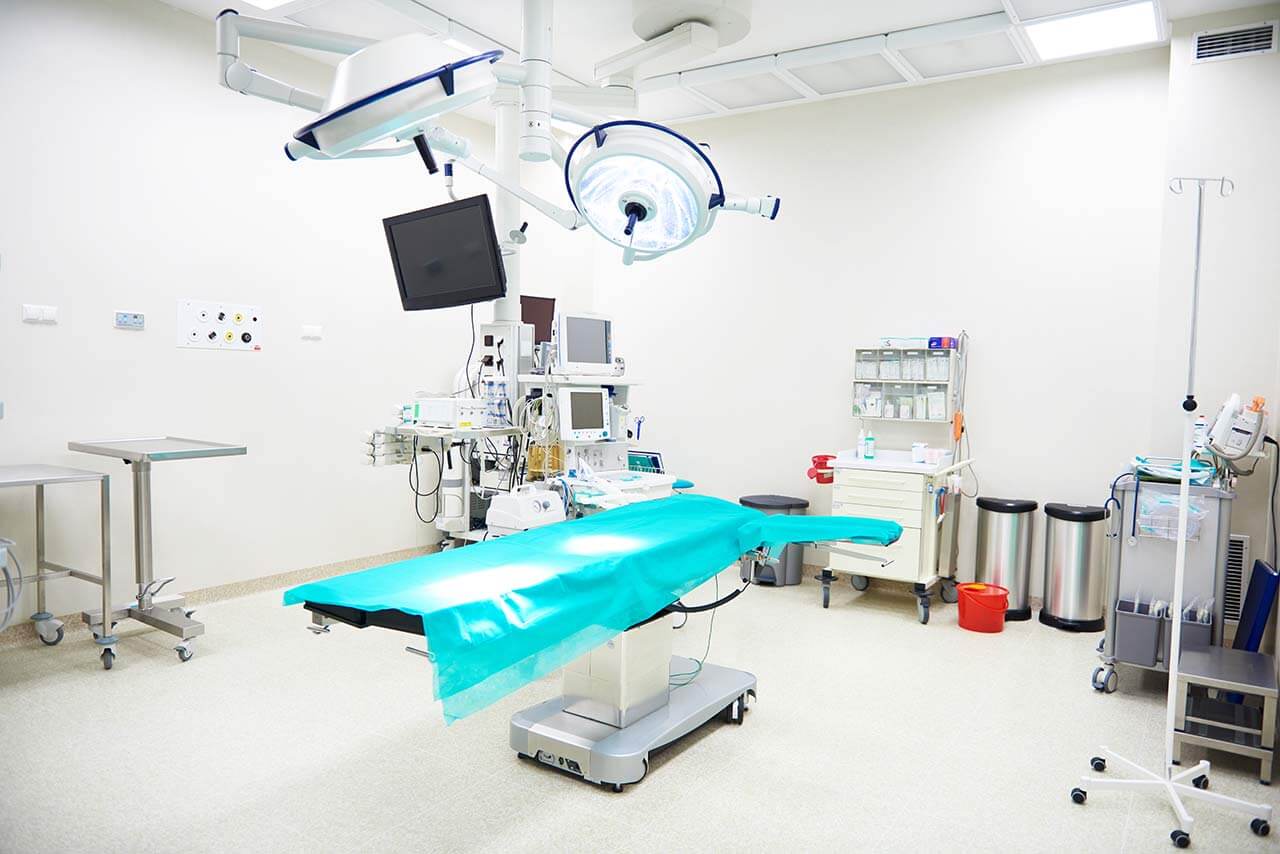
The program includes:
- Initial presentation in the clinic
- clinical history taking
- review of medical records
- physical examination
- laboratory tests:
- complete blood count
- general urine analysis
- biochemical analysis of blood
- inflammation indicators (CRP, ESR)
- indicators of blood coagulation
- tumor markers (CEA, CA19-9, CA125)
- CT-planning of radiation therapy
- full course of radiation therapy or brachytherapy
- individual plan of chemotherapy, the cost of medicines is included
- symptomatic treatment
- cost of essential medicines and materials
- nursing services
- control examinations
- consultations of related specialists
How program is carried out
During the first visit, the doctor will conduct a clinical examination and go through the results of previous laboratory tests and instrumental examinations. After that, you will undergo an additional examination, including complete blood count, laboratory assessment of liver and kidney function. Based on the received results, the physician will elaborate the chemotherapy regimen, conduct radiotherapy planning with the help of CT or MRI, make the permanent tattoo marks on the skin and conduct CT simulation in order to assess the accuracy of the rays and the radiation dose. If necessary, related medical specialists will be involved in the elaboration of a treatment regimen (tumor board).
Chemotherapy and radiation therapy are carried out as the day hospital procedure, without mandatory admission to the hospital. At each visit, the physician will assess your general condition and the marks on the skin. After that, you will be placed in a shielded radiation therapy room, on a special table.
Each radiation therapy session lasts less than half an hour (including preparation). All this time, doctors and nurses are monitoring your condition, you can communicate with them through a loudspeaker. The procedure is completely painless. Depending on the planned course of treatment, you will visit the hospital from 1 to 3-5 times a week.
During the chemotherapy session, after the placement of a venous catheter, you will stay in a comfortable ward. An infusion system will be connected to the catheter, through which the required drug or a drug combination will be administered. All drugs are administered by intravenous drip, slowly, so the total duration of the infusion can be up to several hours. All this time, doctors and nurses will monitor your health condition closely.
After the completion of the chemotherapy and radiation therapy course, you will undergo control examinations aimed at assessing your condition and efficacy of treatment. After that you will receive the medical report with detailed recommendations regarding further follow-up and treatment. In the future, you will be able to have a distant consultation with your attending physician and schedule the next course of treatment, if necessary.
Required documents
- Medical records
- MRI/CT scan (not older than 3 months)
- Biopsy results (if available)
Service
You may also book:
 BookingHealth Price from:
BookingHealth Price from:
About the department
The Department of Oncology and Hematology at the Assuta Hospital Tel Aviv offers the full range of diagnostics and treatment of all types of cancer at any stages and in patients of any age group. Thanks to the combination of high professionalism of Israeli oncologists, advanced anti-cancer methods, innovative drugs, advanced medical technologies, state-of-the-art medical and diagnostic equipment and an individual approach, the department demonstrates excellent treatment results and is one of the leading medical facilities in the world. The department is headed by Dr. med. Julia Greenberg.
Since oncopathology is one of the most difficult challenges of modern medicine, its treatment requires a comprehensive, interdisciplinary approach.Therefore, the department is staffed by a multidisciplinary team of highly qualified doctors, such as oncologists, surgeons, radiologists, chemotherapists, psychologists, who are among the country's best doctors, and also gained credibility in the international arena.
The specialists of the department aim not only to completely rid the patient of a malignant neoplasm and metastases, but also to preserve his acceptable quality of life. Therefore, when choosing medical methods, they give preference to those that not only lead to the desired result, but will also be as sparing as possible. For example, they perform surgical interventions using modern minimally invasive methods, which mostly allow to preserve the integrity and functionality of the organ affected by the tumor, while among the available drugs choose only those that accurately affect cancer cells, without making harm to the healthy ones.
Before a treatment program is prescribed, the patient undergoes the most comprehensive examination with the use of modern effective and safe diagnostic methods, such as CT, PET-CT, MRI, X-rays, biochemical, molecular, genetic studies, endoscopic studies.
The department provides the diagnostics and treatment of the following diseases:
- Breast cancer and tumors of the female reproductive system
- Cancer of the male genital organs
- Tumors of the genitourinary system in women and men
- Gastrointestinal cancer
- Bowel cancer
- Lung and respiratory tract cancer
- Bone and soft tissue cancer
- Brain and spinal cord tumors
- Skin cancer
- Leukemia
- Lymphomas
- Endocrine tumors
- Neuroendocrine tumors
- Tumors in the maxillofacial area
- Head and neck tumors
- Eye tumors
- Other cancers
The therapeutic options of the department include:
- Classical radiotherapy and chemotherapy
- Intensity modulated radiotherapy
- Selective internal radiation therapy
- Contact radiotherapy (brachytherapy)
- Radiosurgery (Gamma Knife, CyberKnife)
- Hyperthermic intraperitoneal chemotherapy (HIPEC)
- High intensity focused ultrasound (HIFU)
- Hormone therapy
- Immunotherapy
- Endoscopic treatments
- Organ-preserving surgery
- Reconstructive surgery
- Bone marrow transplantation in malignant blood diseases
- Autologous transplantation (patient's bone marrow transplantation)
- Allogeneic transplantation (donor bone marrow transplantation)
- Other treatment methods
Curriculum vitae
Julia Greenberg is a distinguished Israeli specialist in the treatment of breast cancer, as well as in the use of thermal therapy and cryogenic methods in oncology. The main specialization of Dr. Greenberg is medical and clinical oncomammology (treatment of breast cancer), within which she has carried out extensive research work, the results of which were published in Israeli and foreign scientific journals. Dr. Greenberg’s activities also include the treatment of cancers of the urogenital system, digestive system and lungs.
In her clinical practice, Dr. Greenberg skillfully combines advanced anticancer techniques with traditional treatments.Thus, she achieves the highest possible effectiveness of therapy, while in advanced cases she manages to achieve significant improvement in the patient’s health and the quality of life. In cancer treatment, Dr. Greenberg is guided by the principle of a differentiated approach to each patient, developing individual treatment programs based on the results of a comprehensive examination. This approach allows her to simultaneously achieve the highest possible treatment efficiency and reduce the negative effects of long-term courses of radiation- and chemotherapy.
Dr. Julia Greenberg has worked in the largest Israeli medical complex called Ichilov (currently Sourasky Hospital) for 11 years (2002 - 2013), where she held the position of a Senior Oncologist in the Department of Oncology and Radiation Therapy.
In addition to clinical practice, Julia Greenberg is engaged in research of anticancer drugs and their combinations in the treatment of cancers. Also, she conducts trainings in this field for oncologists specializing in pharmaceutics.
Specialization
- Oncological mammology.
- Palliative care in breast cancer.
- Urologic oncology.
- Gastrointestinal oncology.
- Treatment of malignant lung tumors.
Education
- Medical Institute of Tashkent, Uzbekistan.
- Internship in Oncology and Radiology, Sheba Medical Center, Israel.
Membership in Professional Societies
- Medical Association of Israeli Doctors.
- Association of Clinical Oncology and Radiation Therapy of Israel.
- American Association of Clinical Oncology.
- European Society for Medical Oncology.
Photo of the doctor: (c) Assuta Medical Centers
About hospital
The Assuta Hospital Tel Aviv was opened in 2009 and today it is one of the largest, modern hospitals with the highest treatment success rates in Israel. The сlinical practice is based on the use of the state-of-art technologies in the world of medicine. The compliance with the high level of medical care and cooperation with the best doctors in Israel is the cornerstone of the hospital’s work and a long tradition of Assuta.
The main clinical focuses of the medical facility include cardiology, neurosurgery, orthopedics, surgery, oncology, gynecology, urology, gastroenterology, reproductive medicine, bariatrics, rehabilitation, etc.
The hospital has 16 state-of-the-art operating rooms, more than 200 beds, resuscitation units, and 2 monitoring laboratories, as well as one of the largest Imaging Diagnostic Centers and the ultramodern Cancer Center.
The hospital was awarded the prestigious certificate of the Joint Commission on Accreditation of Healthcare Organizations for its compliance with high standards of quality and safety of medical care.
Photo: (с) depositphotos
Accommodation in hospital
Patients rooms
The patients of the Assuta Hospital Tel Aviv live in comfortable spacious rooms of a five-star hotel level. The patient rooms are designed in bright colors and equipped with air conditioning, cable TV and other amenities. The rooms have a computer connected to the Internet. In addition to hospital wards, there are also hotel rooms for friends and relatives accompanying the patient, a library, a lecture hall, a recreation room, a prayer house for patients of all religions. On the territory of the hospital there are shops and cafes, where one can drink a cup of aromatic coffee or tea and have a snack.
Meals and Menus
The patients of the hospital are offered a balanced delicious three meals a day: breakfast, lunch and dinner. There are several menus to choose from, including a dietary one.
Further details
Standard rooms include:




